Electronics and Computer Science
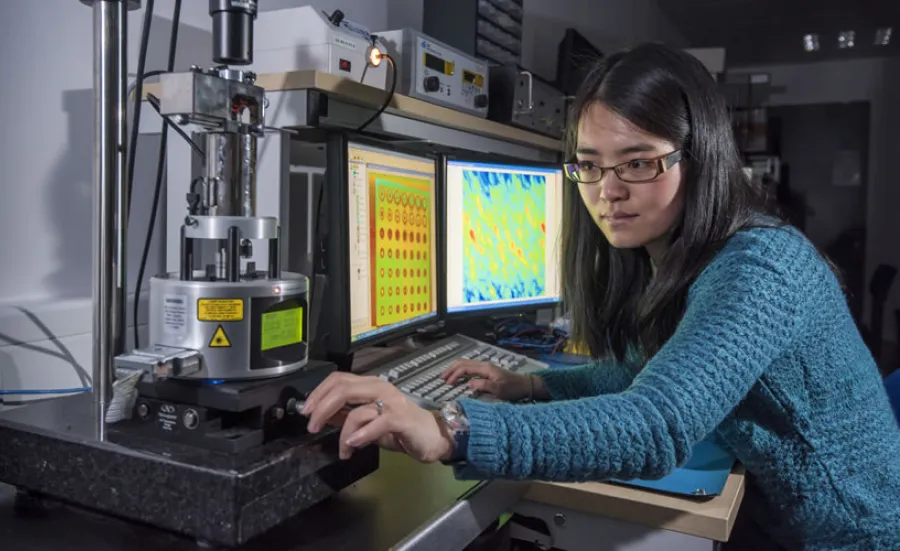
Join over 500 researchers working with industry and government to address some of the problems facing the world today.

Join over 500 researchers working with industry and government to address some of the problems facing the world today.

Electronics and Computer Science (ECS) is the leading university department of its kind in the UK. We were on of the first universities to be named an Academic Centre of Excellence in Cyber Security Education (ACE-CSE) by the UK government.
Our research is organised around research groups and centres. You'll join one of these groups. This means that specialist academics will always be on hand to hear your ideas and offer help and encouragement. With around 250 staff, ECS has unrivalled depth and breadth of expertise.
You'll have the freedom to run your own project and you'll be supported by a team of supervisors. Direct and regular contact with your supervisors will help you develop your scientific insight, and steer you towards creative and original thinking.
Our graduate school provides training on transferable skills, courses on research methodology, and a working framework to help you settle into a disciplined working routine. You'll also have opportunities to travel to international conferences and events to present your work.
ECS holds an annual careers fair that attracts major companies. The majority of our graduates take up roles in the technology industry or develop their research interests further. If you have a great idea our Future Worlds startup accelerator is there to nurture aspiring entrepreneurs through one-to-one support and its network of investors.
This is our standard 3-year research degree. When you apply, you'll choose one of the following:
SustAI is a multidisciplinary and inclusive doctoral training programme. The CDT will provide 70 fully funded PhD studentships over 5 cohorts. SustAI will equip students with state-of-the-art AI technical skills and a deep understanding of how these skills can be applied to address pressing environmental challenges. Register your interest with SustAI.
A key feature of ECS is that we are truly interdisciplinary. Many of our research groups sit at the interface between electronics and computer science, including cyber security and cyber physical systems. Areas include:
The University of Southampton is pleased to announce that PGR students from EU and Horizon associated countries joining us in 2026-27 will pay the same as UK PGRs for their PhD.
You can either apply for a structured studentship or propose your own PhD idea.
Structured studentships are advertised PhD projects with a title, supervisor, remit and funding already in place. These projects have been set up through collaborations with industry, external partners or they may have been provided through one of several centres for doctoral raining which we take part in.
Taking one of our structured studentships will give you access to additional training, conferences and secondments.
Large Language Models (LLMs) are powerful but can be tricked - Adversarial Defence protects them. You will improve LLM robustness to prompt-based attack or jailbreaking, exploring novel algorithms for adversarial defence inspired by recent success of adversarial pre-prompt training, reinforcement learning from human feedback (RLHF) and adding safety layers to LLM architectures.
This project offers a unique opportunity to merge artificial intelligence (AI), acoustics, and active sound control. It aims to develop ground-breaking AI-based technology that predicts the sound at the ears of car occupants using signals from microphones placed elsewhere in the vehicle, ultimately enabling localized active sound control within the car interior.
This project investigates the microstructural evolution and mechanical behaviour of laser-sintered lunar regolith. Combining advanced microscopy, nano-/micro-mechanical testing, and graph neural network modelling, the research will uncover how glass formation and pore topology control strength, enabling predictive design of next-generation regolith-based building materials.
In a world increasingly dominated by AI-generated content, this PhD project will research advanced AI methodologies for detection and localization of manipulated imagery. You’ll push the frontiers of computer vision and data forensics, creating tools that strengthen digital authenticity, security, and global trust in visual information.
This PhD project focuses on Artificial Medical Intelligence, creating AI tools that anticipate risks rather than respond after disease develops. By integrating real-world health data, you will develop digital twins and predictive models to guide prevention and personalised care, combining machine learning innovation with clinical collaboration to improve outcomes.
This PhD explores innovative chiplet‑based hardware acceleration, spanning architectural design to real ASIC tapeout. It offers flexible research directions, including reconfigurable accelerators and scalable multi‑chiplet systems. You will work with industry‑aligned experts to develop cutting‑edge silicon prototypes using emerging heterogeneous integration technologies.
This project will explore the use of lasers and optical hollow-core fibres to detect ionising radiation, aiming to realise distributed radiation sensing along a single fibre. A novel detection capability of this kind may find applications in areas ranging from nuclear threat reduction to particle accelerators and future fusion reactors.
Health technologies play important roles in earlier prediction of illness and enabling behavioural interventions to help manage conditions in the community. Ecological Momentary Assessment (EMA) provides essential data to these processes. This project will develop more frictionless interfaces to the collection of EMA data to support a range of interventions.
The project will explore the design and fabrication of metasurface-based optical components using advanced full-wafer fabrication tools available in the University of Southampton cleanrooms and use advanced nanophotonics laboratories for testing.
How can networks of sensors work collectively in contested environments? This project develops distributed signal processing and filtering algorithms enabling autonomous systems to fuse information reliably under uncertainty and communication constraints. Working with DSTL, you will design principled, scalable methods for next-generation defence sensing and decision-support systems.
This PhD explores how driving simulators can be used to assess and train driving skills, and support rehabilitation following injury, illness, or disability. The mixed-method, interdisciplinary project will investigate their potential as consistent, objective assessment tools as well as their impact on the recovery of cognitive, sensory, and motor skills.
You'll explore how principles of quantum information flow and probabilistic entanglement can enhance coordination, adaptability, and resilience in multi-robot systems. The project bridges quantum technologies and embodied swarm intelligence, aiming to create a new class of collective robotic systems that think and act beyond classical limits.
Agentic AI is rapidly affecting diverse aspects of our life, including social, technological and financial interactions. They may seem like human agents, yet their "thinking" and "reasoning" is not the same. The aim of this project is to study, understand and design the strategic interaction between LLM agents.
This PhD project will develop metasurface-enabled intelligent optical sensing for rapid, accurate identification of miniature features in endoscopy. Building on recent funding from the Engineering and Physical Sciences Research Council (EPSRC) and the Leverhulme Trust, this PhD combines advanced nanofabrication, machine-learning-driven optical design, and close collaboration with University Hospital Southampton, Nanyang Technological University (NTU), Singapore, and the Massachusetts Institute of Technology (MIT).
CPUs with hundreds of cores are expected to take over the computing industry from embedded AI devices to servers. While hardware prediction algorithms like data prefetchers greatly improve instruction-level parallelism, they often focus on single-thread performance. This project will explore novel prediction algorithms for manycores and their theoretical limits.
Revolutionising the semiconductor industry with next generation 2D materials and devices.Moore’s Law is currently being challenged with Nvidia CEO recently claiming it is over. The scaling of transistors cannot continue due to physical limitations of silicon posing a threat to the sustainable evolution of new technologies.
This project will reimagine gel electrophoresis into an innovative engineered microfluidic system, tailored to match the latest long-read sequencing methods for genomic medicine and health data science. By shrinking a decades-old method, that remains essential to DNA analysis, we will enable faster, higher quality genomic analysis.
This project explores the development of a Multimodal Large Language Model that empowers robots to understand and respond to humans through vision, language, and other sensory data. By enabling natural, adaptive, and context-aware communication, the research advances the next generation of intelligent, human-centered robotic systems.
Artificial intelligence is transforming society but comes with a growing energy and carbon cost. This project will explore new nanostructured materials and device architectures that can deliver brain-inspired computing with radically improved energy efficiency.
This project will be designing and building topological photonic crystals on silicon chips, aiming to promote important applications such as optical imaging, sensing, and computing.
A research project within the Doctoral Centre for Advanced Electrical Power Engineering will consider a complex set of plasma phenomena and physical processes taking place during contact opening in DC switches as well as an optimisation of the devices design to extend its applicability for higher currents and voltages.
This fully funded PhD investigates low‑power, high‑reliability chiplet physical‑layer design in advanced CMOS/FinFET technologies, including transceiver optimisation, reliability‑aware subsystems, interposer development, and electrical characterisation. The project includes full physical design and ASIC tapeout of chiplet prototypes, supported by industry‑linked soclabs.
Physical reservoir computing is attracting much attention as a simple and energy-efficient option of neuromorphic computing and our focus is to use Micro or Nano-Electro-Mechanical Systems (MEMS/NEMS) technologies to meet the system requirements of low-power consumption, high device density for high speed processing, and suitable nonlinearity and memory capacity at the same time.
Large Language Models (LLMs) like GPT-4 are transforming how we use information but also exposing new privacy and security risks. This project explores how sensitive data can leak from deployed LLMs and their applications, developing auditing and mitigation methods to make LLMs-based systems safer, more transparent, and accountable across domains.
6G networks will be compute-native, evolving from packet-forwarding infrastructures into distributed in-network computing platforms. This project seeks to extend the limits of in-network computing by redefining what computation can be performed within the network data path, and how such capabilities can be coordinated across edge and core networks.
MLOps refers to the processes for developing and maintaining machine learning systems. Robust MLOps ensure reliability under uncertainty, adversarial conditions, and distributional shifts. Given the massive growth of ML-based projects across scientific fields, effectively managing risks to MLOps robustness has become non-negotiable.
This project develops AI-enhanced threat-modelling techniques to improve the cybersecurity and resilience of autonomous vehicles. It analyses vulnerabilities in AI-driven sensing and decision systems, models complex adversarial interactions, and designs adaptive detection and mitigation strategies, with applicability to other safety-critical domains.
Future space systems face unprecedented threats from radiation-induced faults and malicious tampering. This project will develop and validate adaptive, radiation-tolerant hardware architectures that secure both functional integrity and cryptographic trust in spaceborne electronics.
We offer a wide range of fully funded studentships. We run several of our PhD studentships in partnership with doctoral training centres, meaning you'll benefit from enhanced training and guaranteed funding.
These studentships:
Doctoral training centres offer fully funded studentships which include:
Find out more about doctoral training centres.
In association with the UK joining the EU Horizon Programme, the University of Southampton will be introducing and applying an EU fee waiver for students joining us from EU and Horizon associated countries. This means that PGR students joining us from 2025-26 will pay the same fees as UK PGR students.
See here for full information terms and conditions
We offer scholarships and teaching bursaries ourselves. Your potential supervisor can guide you on what is available.
If you’re an international student you may be able to apply for a scholarship from your country.
Find out more about scholarships
Once you've found a supervisor, they can help you with potential funding sources. We offer match funding in some cases.
You'll need to state how you intend to pay for your tuition fees when you submit your application.
Find out more about funding your PhD
You may be able to fund your postgraduate research with funding from your current employer or from industry.
You can borrow up to £30,301 for a PhD starting on or after 1 August 2025. Doctoral loans are not means tested and you can decide how much you want to borrow.
Find out about PhD loans on GOV.UK
You may be able to win funding from one or more charities to help fund your PhD.
We charge tuition fees for every year of study. If you’re applying for a fully funded project, your fees will be paid for you.
EU Fee Waiver: If your country is part of the Horizon Europe Programme, you will pay the same fees as UK students.
Find out if your country is part of the Horizon Europe programme
| Subject | UK and Horizon programme applicants | International fees |
|---|---|---|
| AI for Sustainability (SustAI CDT) iPhD full time | £5,238 | £27,300 |
| AI for Sustainability (SustAI CDT) iPhD part time | £2,619 | £13,650 |
| Computer science full time | £5,238 | £27,300 |
| Computer science part time | £2,619 | £13,650 |
| Electronics and electrical engineering full time | £5,238 | £27,300 |
| Electronics and electrical engineering part time | £2,619 | £13,650 |
| Subject | UK and Horizon programme applicants | International fees |
|---|---|---|
| AI for Sustainability (SustAI CDT) iPhD full time | £5,006 | £26,700 |
| AI for Sustainability (SustAI CDT) iPhD part time | £2,503 | £13,350 |
| Computer science full time | £5,006 | £26,700 |
| Computer science part time | £2,503 | £13,350 |
| Electronics and electrical engineering full time | £5,006 | £26,700 |
| Electronics and electrical engineering part time | £2,503 | £13,350 |
Access full fee information from previous years.
You're eligible for a 10% alumni discount on a self-funded PhD if you're a current student or graduate from the University of Southampton. This will not apply for programmes that are externally funded. Please check the fees and funding section.
Our research takes place in a multidisciplinary, collaborative environment, organised across globally important research groups and national research centres.


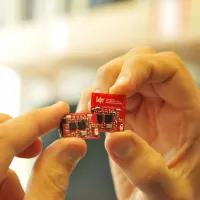

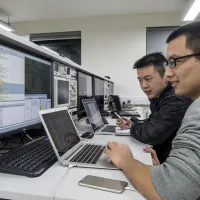

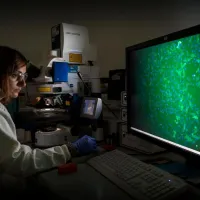




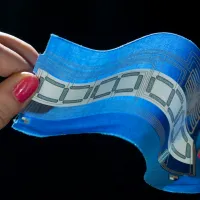




We offer 3 doctoral routes:
If you choose our standard research PhD, decide whether to apply to an advertised research project or create your own proposal.
Whichever programme you choose, you'll need to identify a potential supervisor. Therefore it's a good idea to email supervisors working within your field of interest to discuss PhD projects. It's best to do this well ahead of the application deadline.
You’ll find supervisors’ contact details listed with the advertised project, or you can search for supervisors in the staff directory.
As part of your online application, you’ll need to send us:
The application process is the same whether you're applying for a funded project, or have created a research proposal.
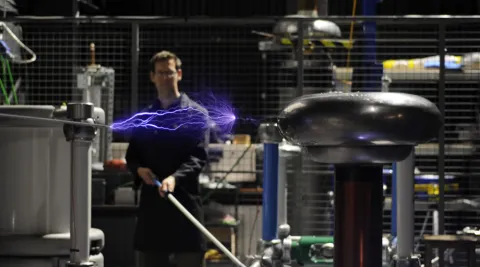
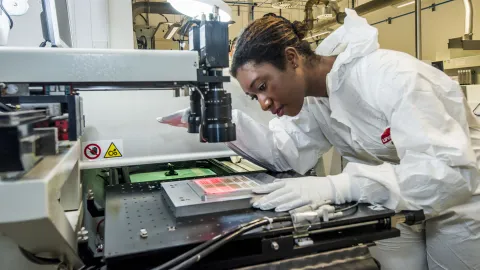
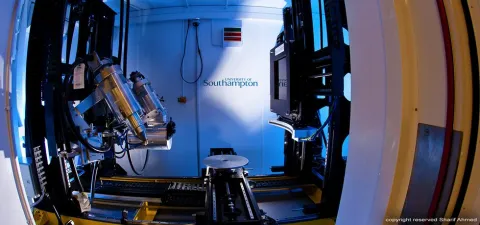
You need at least a 2:1 degree in a relevant subject, or its international equivalent.
If English is not your first language, you'll need an IELTS minimum level of 6.5 with a 6.0 in writing, reading, speaking and listening.
If you are applying for the SustAI iPhD. you'll need an IELTS minimum level of 6.5 with a 6.0 in writing, reading, speaking and listening.
Your awarded certificate needs to be dated within the last 2 years.
If you need further English language tuition before starting your degree, you can apply for one of our pre-sessional English language courses.
Check the specific entry requirements listed on the project you’re interested in before you apply.
For general admissions questions, please contact the Doctoral College - feps-pgr-apply@soton.ac.uk.
Research degrees have a minimum and maximum duration, known as the candidature. Your candidature ends when you submit your thesis.
Most candidatures are longer than the minimum period.
| Degree type | Full time | Part time |
|---|---|---|
| Computer science PhD | 2 to 4 years | 3 to 7 years |
| Electronics and electrical engineering PhD | 2 to 4 years | 3 to 7 years |
| AI for Sustainability Centre for Doctoral Training iPhD | 5 years | 8 years |
| Quantum Technology Engineering Centre for Doctoral Training PhD | 4 years | 7 years |